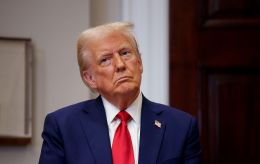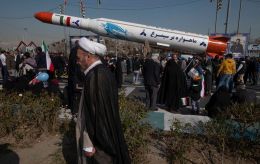'Not one inch eastward.' Why Russia opposes NATO expansion
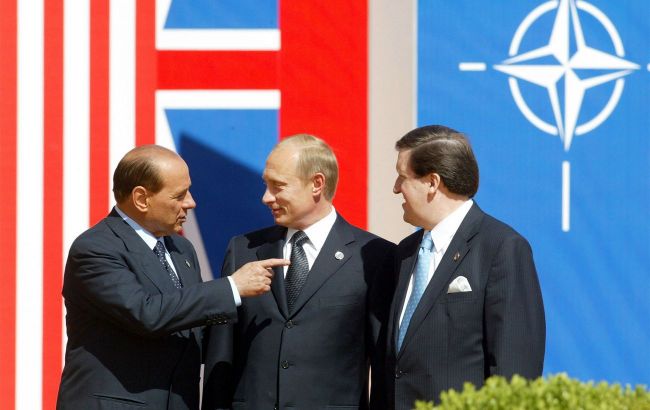 Photo: Silvio Berlusconi, Vladimir Putin, and George Robertson at the 2002 NATO summit (Getty Images)
Photo: Silvio Berlusconi, Vladimir Putin, and George Robertson at the 2002 NATO summit (Getty Images)
NATO tried to build a partnership with Russia for a long time, but today their relations are the worst since the Cold War. NATO considers Russia the number one threat, and Moscow accuses the Alliance of allegedly breaking an old promise.
Whether Russia has always had a conflict with NATO and why Moscow is against the expansion of the bloc to the East - read in the material by RBC-Ukraine.
Contents
- How the Soviet Union wanted to join NATO
- Russia-NATO relations
- Why Russia opposes NATO expansion
How the Soviet Union wanted to join NATO
In 1946, British Prime Minister Winston Churchill declared the threat of a new war for Western countries arising from the Soviet Union and the spread of communism. At that time, Churchill called for a firm policy toward the USSR and insisted on the creation of a Western defense alliance, and on April 4, 1949, the North Atlantic Alliance was created.
Although NATO was created, among other things, to contain Soviet expansionism, the Soviet Union itself tried to join the bloc several times.
In 1954, Moscow proposed joining the USSR to NATO (the Ukrainian SSR and the Belarusian SSR also expressed their desire to become members of the alliance) but received a refusal.
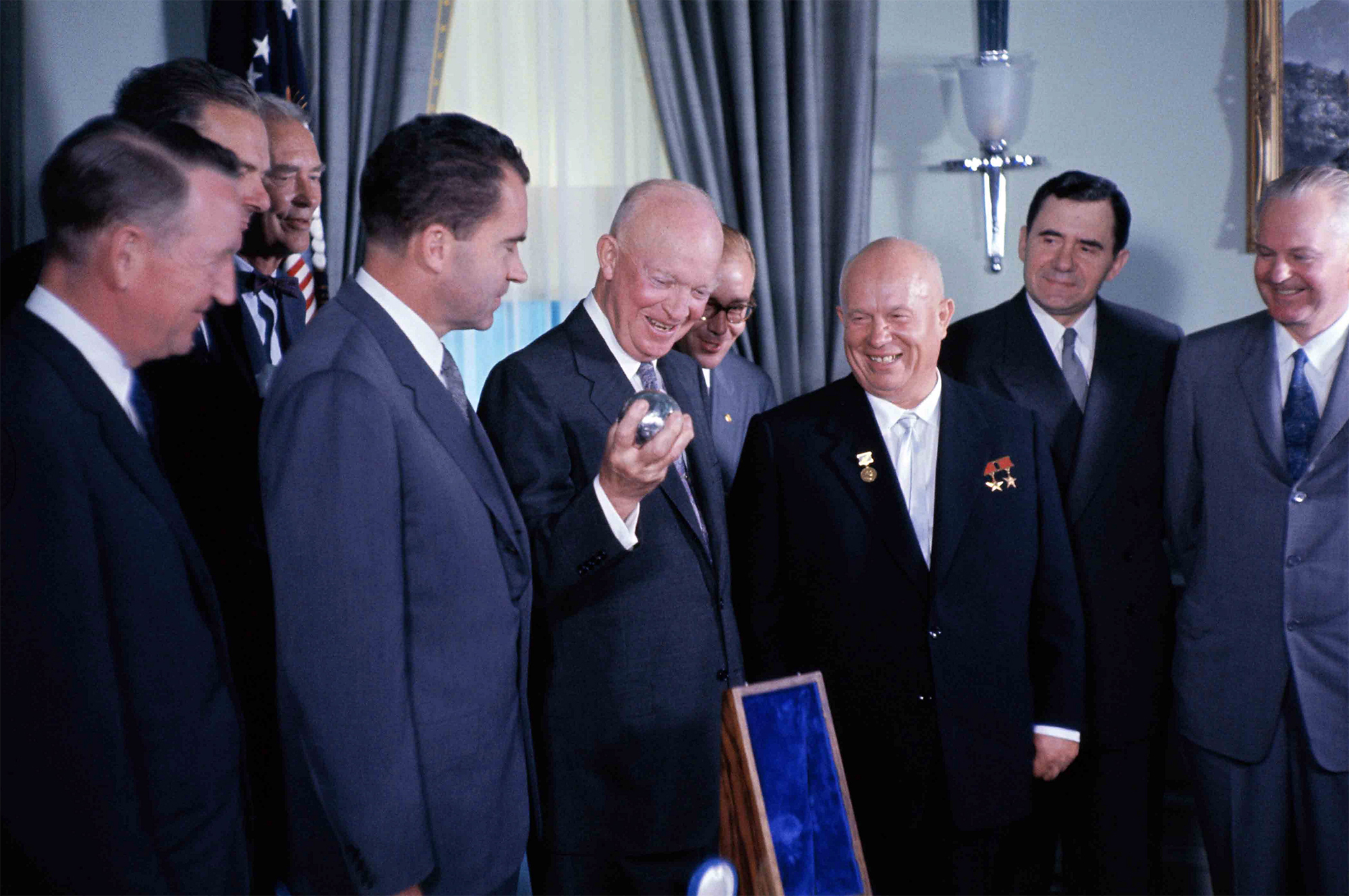
Photo: Dwight Eisenhower and Nikita Khrushchev (Getty Images)
At that time, US President Dwight Eisenhower asked Secretary of the Central Committee of the Communist Party of the Soviet Union Nikita Khrushchev, who had previously threatened to destroy NATO, whether the Soviet Union was indeed ready to become part of the bloc. But in the end, this was hindered by the refusal of Britain and France. "The unrealistic nature of the proposal does not warrant discussion," the official statement said.
In 1983, there were rumors in Europe that then-Soviet General Secretary Yuri Andropov was also considering joining NATO, but the downing of a South Korean passenger plane by a Soviet fighter jet over Sakhalin put an end to this issue.
Russia-NATO relations
After the collapse of the Soviet Union, relations between Russia and NATO were established quite quickly.
In 1994, Moscow joined the Partnership for Peace program, and in 1997, the so-called Founding Act was concluded between Russia and NATO, where the parties expressed their strong desire "to build together a lasting and inclusive peace in the Euro-Atlantic area on the principles of democracy and cooperative security." Already during Vladimir Putin's presidency, the NATO-Russia Council was established in 2002 (a similar council between Ukraine and the Alliance was formed only last year).
In 2000, according to NATO Secretary-General George Robertson, Putin even hinted at a desire to join the Alliance. "When will you invite us to NATO?" Putin once said during a meeting with Robertson.
In response, Robertson suggested that Russia apply for membership, as all countries must do since NATO does not invite anyone on its own. But Putin was not satisfied with such a scenario, because Russia "does not stand in line with a lot of countries that do not matter," Robertson recalled in an interview with The Guardian in 2021.

Photo: Vladimir Putin at the NATO summit in Bucharest (flickr.com/andrei89)
Putin also said that he asked to join NATO, but allegedly received a "very restrained reaction" from the United States in response.
"I will now say something that I have never said publicly. In 2000, during President Clinton's visit to Moscow, I asked him how America would react to accepting Russia into NATO. I will not reveal all the details of that conversation, but the reaction to my question outwardly seemed, let's say, very restrained," Putin said in February 2022.
However, NATO has always tried to maintain partnership and friendship with Russia, even despite its aggression against Georgia or the occupation of Ukrainian Crimea and parts of Donbas. But relations between the Alliance and Moscow have constantly deteriorated, and the Kremlin has turned NATO into the main enemy of Russia in the eyes of Russians. And only the full-scale invasion of Ukraine forced NATO to recognize Russia as the main threat to the Alliance.
Why Russia opposes NATO expansion
Shortly before the full-scale invasion of Ukraine and amid Kyiv's increased Euro-Atlantic efforts, Putin opposed NATO's eastward expansion, particularly through the inclusion of Ukraine, claiming it would allegedly threaten Russia's security.
"Imagine that Ukraine becomes a NATO member. The flight time of a missile from Kharkiv or Dnipro to Moscow would be reduced to 7-10 minutes. Is this a red line for us or not?" he said in June 2021.
That same year, Putin demanded guarantees from the West that NATO would not expand toward Russia and would not admit Ukraine into its ranks. In December, Moscow sent Washington a draft security agreement that not only included a promise not to expand eastward but also not to deploy NATO troops in countries that joined the Alliance after 1997. These included Eastern European and Baltic countries.
The Russian president explained this demand by claiming that NATO had supposedly promised Russia in the 1990s not to expand eastward but had broken this promise.
"Not one inch eastward, they told us in the 1990s. And what happened? They lied! They brazenly deceived us. Five waves of NATO expansion! We are not threatening anyone. Did we come to the borders of the USA or Britain? They came to us," Putin complained in December 2021.
This refers to a conversation that allegedly took place in February 1990 between US Secretary of State James Baker and the last General Secretary of the CPSU Mikhail Gorbachev, during which the American supposedly asked, "What if you let your part of Germany go, and we agree that NATO will not shift one inch eastward from its present position?"
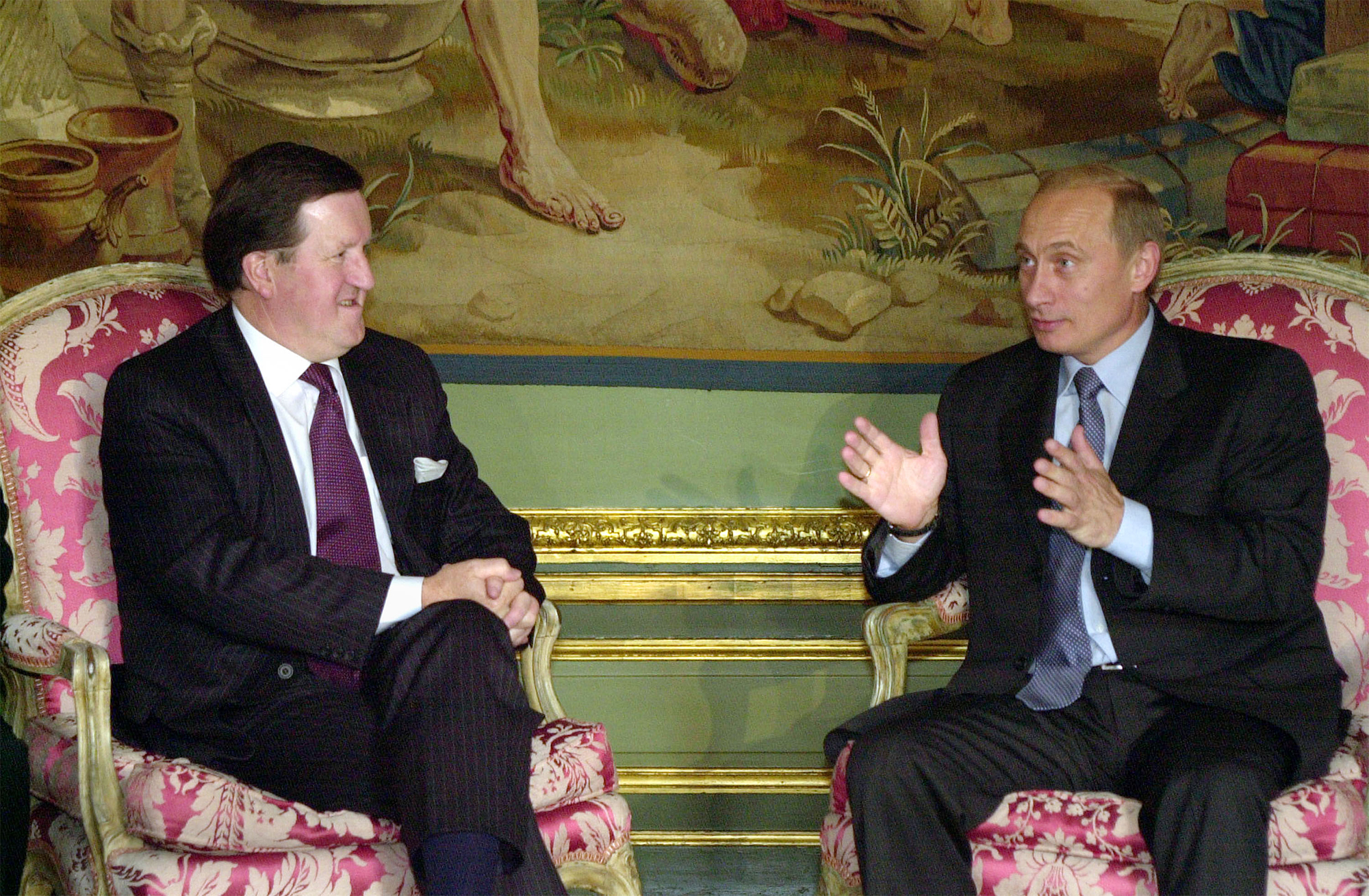
Photo: Vladimir Putin and George Robertson (Getty Images)
No official agreement was concluded as a result of this conversation, and even if such a question was indeed posed, it was more of a hypothetical proposal than a promise (especially since East Germany reunited with West Germany without Moscow's voluntary agreement). But Putin has repeatedly used this conversation as proof that NATO allegedly broke a promise made to Moscow.
However, NATO's expansion only recently started to bother Putin (though Moscow has always been against Ukraine's Euro-Atlantic integration). As former NATO Secretary-General Robertson told the Austrian newspaper Die Presse, he had nine meetings with Putin, and the latter never mentioned NATO expansion. The only thing that concerned him, according to Robertson, was adjusting the treaty on conventional armed forces in Europe after the Baltic countries joined NATO.
"This was resolved, and Putin said: 'This is enough for me.' All of Putin's statements today are just an excuse to justify his aggressive behavior. By the way, Putin also signed the Rome Declaration at the NATO summit in 2002, which enshrines the territorial integrity of all states," the former Secretary-General said.
Today, Russia and NATO are essentially enemies. Moreover, Moscow is conducting active hybrid aggression against Alliance member countries, from disinformation and cyberattacks to sabotage and provocations. Given the full-scale war in Ukraine and increasingly aggressive steps by Russia toward NATO, it is unlikely that there will be a return to "good neighborly" relations in the coming years, or even decades.
Sources: publications by Western and Russian media, statements from former NATO Secretary-General George Robertson and Russian president Vladimir Putin.
Earlier RBC-Ukraine explained why Ukraine is not yet being accepted into NATO and how Russia is involved in this.
Additionally, next week, the USA will host the anniversary NATO summit. Ukraine's expectations and possible outcomes of the meeting in Washington are enlisted in RBC-Ukraine's article.
